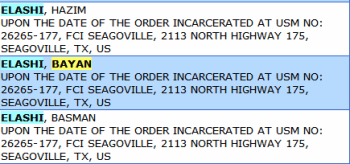 Last week the House Foreign Affairs Committee unanimously approved legislation that would expand the Iran and Libya Sanctions Act of 1996. Under the proposed legislation (H.R. 957), sanctions provided under the Iran Sanctions Act could also be imposed on U.S. companies based on business activities of their foreign subsidiaries in Iran.
Last week the House Foreign Affairs Committee unanimously approved legislation that would expand the Iran and Libya Sanctions Act of 1996. Under the proposed legislation (H.R. 957), sanctions provided under the Iran Sanctions Act could also be imposed on U.S. companies based on business activities of their foreign subsidiaries in Iran.
The Iran Sanctions Act requires the President to impose sanctions on companies that make an investment of $40 million or more that “directly and significantly contributed to the enhancement of Iran’s ability to develop petroleum resources of Iran.” The sanctions that can be imposed on such a company include denial of export privileges, debarment from government contracting and prohibitions of loans to the sanctioned company from U.S. financial institutions.
The proposed legislation increases the scope of the Iran Sanctions Act by modifying the definition of person to include “foreign subsidiaries.” It also modifies the definition of petroleum resources to include “petroleum by-products [and] liquified natural gas” for purposes of the Act.
As is usually the case with unilateral sanctions proposals, very little thought was apparently given as to whether this bill would accomplish anything other than to make it easier for non-U.S. companies to invest in Iran. This lack of analysis extends even to the language of the provision which erroneously cites each of the provisions it is attempting to amend. The definition of “person” is in section 14(14) of the Act, not section 14(13) which H.R. 957 references. Similarly, the definition of “petroleum resources” is in section 14(15) of the Act, not in section 14(14) which H.R. 957 references.
Moreover, H.R. 957 inserts language in the wrong place in the Iran Sanctions Act. It states that “, petroleum by-products, liquified natural gas” should be inserted “after ‘petroleum’ the second place it appears” in the amended section. That would make the provision read as follows:
PETROLEUM RESOURCES.—The term ‘‘petroleum, petroleum by-products, liquified natural gas resources’’ includes petroleum and natural gas resources.
Oops. Clearly the bill’s drafter meant the third place petroleum appears rather than the second place.
That’s a lot of mistakes for a bill that is exactly one page and eighteen lines long.
This bill needs to go back to the drafting table, both for technical and substantive reasons.
UPDATE: As pointed out in the comments, the Iran Freedom Support Act, changed the numbering of the definitions section, so that the sections referenced in the proposed bill are in fact referenced by the correct section numbers. The bill’s placement of the phrase “petroleum by-products, liquified natural gas,” however, remains incorrect.
 According to this AP wire story, two men in Florida were charged with violating the Cuban Sanctions Regulations by applying for Cuba travel licenses using “fake” religious organizations. Prosecutors charged that the two men then sold these licenses to travel agencies which, in turn, sold these licenses to over 4,500 people who used them to travel to Cuba.
According to this AP wire story, two men in Florida were charged with violating the Cuban Sanctions Regulations by applying for Cuba travel licenses using “fake” religious organizations. Prosecutors charged that the two men then sold these licenses to travel agencies which, in turn, sold these licenses to over 4,500 people who used them to travel to Cuba. 
 Posted by
Posted by  Category:
Category: 

 BIS just posted additional information on voluntary self disclosures on its
BIS just posted additional information on voluntary self disclosures on its  Last week the House Foreign Affairs Committee
Last week the House Foreign Affairs Committee  One of the things that SCP Global Technologies got in trouble for according to the
One of the things that SCP Global Technologies got in trouble for according to the  BIS will send you,
BIS will send you, 


